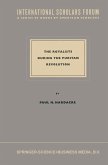This book proposes, for the first time, an in-depth analysis of the Philosophie sociale, published in Paris in 1793 by Moses Dobruska (1753-1794). Dobruska was a businessman, scholar, and social philosopher, born into a Jewish family in Moravia, who converted to Catholicism, gained wide recognition at the Habsburg court in Vienna, and then emigrated to France to join the French Revolution.
Dobruska, who took on the name Junius Frey during his Parisian sojourn, barely survived his book. Accused of conspiring on behalf of foreign powers, he was guillotined on April 5, 1794, at the height of The Terror, on the same day as Georges Jacques Danton.
From Dobruska's ideas, which were widely used between the late eighteenth century and the first decades of the nineteenth century without attribution to their author, emerge some of the key concepts of the social sciences as we know them today. An enthusiastic and unfortunate revolutionary and sometimes a brilliant theorist, Moses Dobruska deserves a role of his own in the history of sociology.
Click here for a video book presentation by the author.
Hinweis: Dieser Artikel kann nur an eine deutsche Lieferadresse ausgeliefert werden.
Dobruska, who took on the name Junius Frey during his Parisian sojourn, barely survived his book. Accused of conspiring on behalf of foreign powers, he was guillotined on April 5, 1794, at the height of The Terror, on the same day as Georges Jacques Danton.
From Dobruska's ideas, which were widely used between the late eighteenth century and the first decades of the nineteenth century without attribution to their author, emerge some of the key concepts of the social sciences as we know them today. An enthusiastic and unfortunate revolutionary and sometimes a brilliant theorist, Moses Dobruska deserves a role of his own in the history of sociology.
Click here for a video book presentation by the author.
Hinweis: Dieser Artikel kann nur an eine deutsche Lieferadresse ausgeliefert werden.








